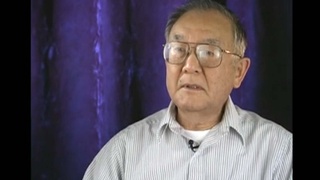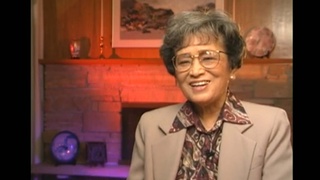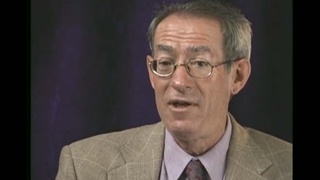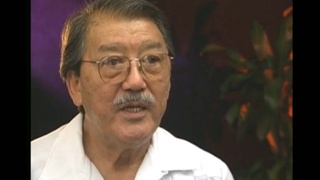Entrevistas
Getting Jim Wright to sponsor the bill
Jim Wright was at that time the majority leader, and -- no, I'm sorry, he was whip at the time. And so I went to ask him and he was a fighter pilot in the South Pacific, and he came home on leave in 1944, and then he heard about the camps and the Japanese Americans in the camps and all that. And he said he thought to himself, "That's not what I was fighting for in the South Pacific," and he said at that time that at some point he wanted to do something to correct that wrong. He said, "That's not right."
So when I got elected to Congress, I got elected to the Public Works and Transportation Committee, Jim Wright, congressman from Texas was on the Public Works and Transportation Committee. And we got to talking a lot, and got to be good friends, and then he got elected to go up in the leadership. So on this bill, I went back to him and I said, "Jim, I really need your help." And then he told me about the "Lost Battalion" and how the 442nd/100th had lost a lot of blood to, to get the rescue of the "(Lost) Battalion." He said, "Absolutely, put me on the bill." And I said, "I'm not going to put you on the bill. I need you as the lead sponsor," and he said, "Fine, put me as the lead sponsor."
So to have the number three in the Democratic leadership as the lead sponsor on the bill was a big boost. So you'd go and say, "Jim Wright's on this bill," especially with the southern members. So when, after the bill was passed and the commission was formed, and they had these national hearings across the country, I don't know how many hearings they had, maybe twenty, twenty-five.
I*: Yeah, I want to go back to, so after you, you had Jim Wright agree to that, what kind of reaction, how did you feel when you decided to do that? That must have been a really important moment.
Well, it was just great. Jim said he would sign on the bill, so just thanked him profusely, shook his hand, Glen and I walked out of his office, we didn't say a thing. And just kept walking, turned the corner, we got into the elevator, and we got into the elevator and going, "Yes! We got Jim Wright as the sponsor of the bill!" And we were just sitting there inside the elevator by ourselves hugging and thinking, "Jim Wright is on the bill with us." It was really a big moment for us.
* "I" indicates an interviewer (Tom Ikeda).
Fecha: July 4, 2008
Zona: Colorado, US
Entrevista: Tom Ikeda
País: Watase Media Arts Center, Japanese American National Museum
Explore More Videos

Una historia en desarrollo (Inglés)
(1929-2014) Defensor del movimiento Redress

La necesidad de una indemnización monetaria (Inglés)
(1923 - 2008) Uno de los líderes del movimiento Redress

Borrando la amargura (Inglés)
(1923 - 2008) Uno de los líderes del movimiento Redress





Los deberes de la encargada de los testigos (Inglés)
Presidió el Comité de Redress de Chicago JACL

Demasiado avergonzada de contarles (Inglés)
Presidió el Comité de Redress de Chicago JACL

Qué hacer a continuación (Inglés)
Presidió el Comité de Redress de Chicago JACL

Crecimiento en el número de asistentes (Inglés)
(1928 - 2003) Activista político

Convenciendo a la gente de Washington DC (Inglés)
(1928 - 2003) Activista político


Los sansei y el movimiento por el resarcimiento (Inglés)
(n. 1922) Músico

El acuerdo de una suma de dinero en dólares para el resarcimiento (Inglés)
Juez, único japonés americano que sirvió a CWRIC
